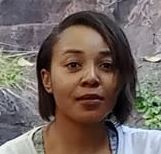The Seminar will cover a wide range of combustion topics ranging from the fundamentals of combustion, furnaces, burner management systems, fuel handling equipment and process controls. Below is a brief summary of the topics:
(Key Note) New fundamentals: initiatives, trends and technology changes in the combustion and environmental applications throughout the industrial world. – Werner Liere-Netheler – Honeywell Thermal Solutions International
Fundamentals of Combustion (By Dr Tony Biddlestone): Terminology – Law, words, history, ignition, installation and explosions
-
- Combustion chemistry – chemical reactions, water treatment, emission and temperature
- Characteristics of different fuels and how they burn – gas, coal, oil and bio mass waste
- Proper fuel/air ratio and combustion limits – control of fuel air ratio, types of burner, space and time
- Flame temperature – fuel and matches
- Flame geometry and operational applications – furnaces opposed firing, front firing and fluid bed
Combustion Systems and the Environment (By Carl Bothma – Combustion Group):
-
- The mechanisms and variables that influence NOx formations
- Environmental impact and control techniques are described.
- Flame temperature, combustion control, burner design, process variables and post combustion control of emissions
Modern Combustion Controls (By Grant Reneclé – Combustion Technology):
-
- What is Combustion Control?
- What is the Chief Objective of Combustion Control?
- The Key Ingredients of “Good” Combustion.
- Stoichiometric ratio
- What we need to focus on to Achieve our Objectives!
- How modern Controls achieve these in Industrial Steam Boilers and Furnace Burners
Burner Management System – Electrical Parts thereof (By Dave de Wit – Pro Thermal):
- Flame guarding unit
- Safety interlocks & critical safety devices
- Process input
- Standards, Electrician & CoC
Flame Safety and Sequence Control (Peter Pape, Fireye):
- Discussion of the function and the need for flame monitoring equipment, technique for flame detection and the features of flame safety equipment
Heat Application:
- High/Low Temperature Heat Application
- Optimizing heat transfer of furnace combustion systems by relating current burner types and resultant flames to a number of industrial heating configurations
Practical Fluid Flow & Piping Practices for Combustion Systems (By Riaan van der Walt – Henley Gas):
- Workshop: Problem and Solution of a typical combustion-sizing problem will be presented for analysis by the participants
Fuel/Air Ratio Control (By Don Forsyth – Combustion Group):
- Atmospheric premix (proportional, mechanical I & II), ratio regulator, linked valves and control.
The Basics of IR / IR Applications (By Paul G. Hopwood – PG Hopwood & Associates ):
- How infrared works, the characteristics, temperature & wave length
- Types of IR heaters and different types of absorption
- Processes/applications that have been successful utilizing IR (energy reduction, quality improvement, increased throughput, etc.)
Combustion Protective Systems (By Adriaan van Wyk – Proconics):
- ISO 13577-4
Furnace and Process Controls (By Aresh Mohabeer – Engineered Thermal Systems):
- The application process controls with emphasis on furnace and combustion system controls to optimise efficiency, product quality and productivity
Combustion Troubleshooting
- Optimizing Combustion Systems Performance – A typical manufacturing plant using melting, heating and heat treating furnaces and boiler issued as an example to illustrate how to organize and implement an energy use optimization program, designed to reduce total operating costs. The overall impact on NOx and CO2 emissions is tracked
Discussion Combustion System Maintenance (By Riaan van der Walt, Dave de Wit & Adriaan van Wyk):
- To complete the seminar’s comprehensive coverage of combustion systems, time is allocated for an open discussion of practical furnace maintenance activities. Participants will have an opportunity to ask questions and share experiences and concerns with other attendees (Panel & Floor participation)
Click here for further information or to book for the seminar.
![]()

